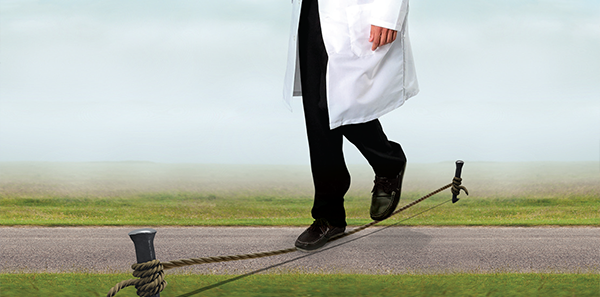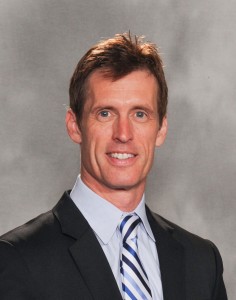
I recently attended ACEP’s Diversity Summit, spearheaded by ACEP President-Elect Rebecca Parker, MD, FACEP, as part of the diversity initiative that will be a key part of her presidency. Professionally, thank you Dr. Parker for your vision and leadership, and personally, I thank you for your invitation to the Diversity Summit. I learned a few things about myself, and more importantly, I learned about others.
Explore This Issue
ACEP Now: Vol 35 – No 06 – June 2016In one of the early activities for attendees at the summit, we were asked to tell the others in our small group of three why we believed we were invited to attend. It was clear to me why others were present, as they were representing diverse groups of the College, but why me? I noted that I suspect Dr. Parker asked me because she knows I am sensitive to the issues of cultural diversity and have always tried to express my open support. However, one of my group members said, that’s not why you are here—you are here because hearing the message from someone who doesn’t need to tell it is powerful. In other words, no one is surprised to hear a woman advocate for gender equality or an African-American speak to the need for racial equality, but when the issue becomes important to those who are not directly in the line of fire and there’s a realization that we are all negatively impacted by bias and insensitivity, it becomes everyone’s issue.
We will never all be alike and nor would we want to be. There are many characteristics that make us diverse. Unfortunately, society tends to focus on obvious and easily detectable differences (eg, gender, ethnicity, religion, and sexual orientation). We may never know the countless ways each of us differs from the next. Those differences may be a source of intrigue, but not admonishment or judgment.
It’s good to be confident and comfortable in one’s own skin, but being comfortable in your skin shouldn’t imply that your skin is the standard one size that should fit all. Quite the contrary, if we enjoy being who we are, free from bias and persecution, we should ensure others enjoy that same basic human right.
I’m a Caucasian, middle-aged, Christian, heterosexual male. I’m not what people think of when they hear the word “diverse.” The summit taught me a thing or two about myself. Yes, if we focus on gender, race, etc., my demographic lacks diversity. However, when we consider the entire person, the diversity among all of us is exponential. In one summit exercise, random characteristics were called out by the facilitator and those with that characteristic were to briefly stand. “Were you a cheerleader?” Two women and one man stood. I was standing. You have no idea how uncomfortable and embarrassed I felt (or maybe you do). I felt the immediate impulse to explain why I chose that path in college (I’ll save that story for another day). But I shouldn’t have to explain this to anyone. Nonetheless, I felt the social pressure to explain why I was different. Epiphany: If I felt self-conscious about my insignificant differences being exposed for one minute, then what must others feel about their ethnicity, religion, gender, etc. when made to feel the same way? Regardless of what the characteristic was, each of us was eventually called out and publicly isolated. This was an uncommon situation for someone of my demographic background.
Pages: 1 2 3 4 | Single Page





One Response to “ACEP Diversity Summit Promotes Cultural Sensitivity, Acceptance Among Members”
June 22, 2016
Mark Rabold, MDI just finished 30 years as an ER Doc and have always said “Thank God that the ER is the last bastion against the lunacy and stupidity of political correctness”. I was deeply saddened to see that this is no longer true. We used to be the no BS specialty and just did what needed to be done without bowing to political whims. It is sad that Dr. Klauer is now a true believer and thinks we should be too. It appears that I retired just in time. Best of luck folks! You are gonna need it.